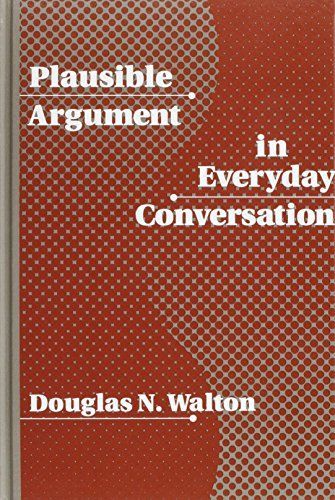
Plausible Argument in Everyday Conversation
This book provides a practical and accessible way of evaluating good and bad arguments used in everyday conversations by applying normative models of dialectical (interactive) argumentation, where two parties reason together in an orderly and cooperative way. Using case studies, the author analyzes correct and incorrect uses of argumentation on controversial issues that engage the reader's interest while illustrating points in a practical way. Walton gives clear explanations of the most common errors and tricky deceptions -- traditionally called "fallacies" -- that can trip up an unwary arguer.